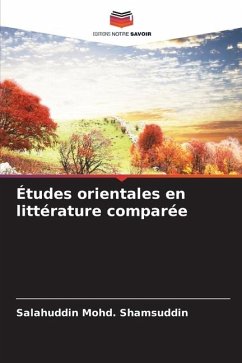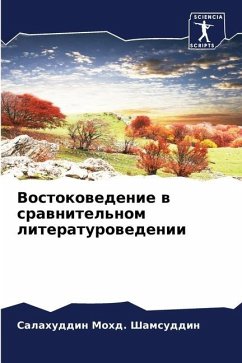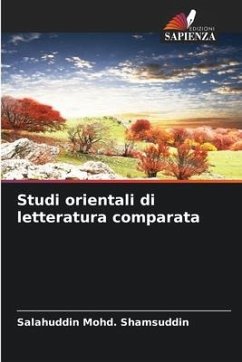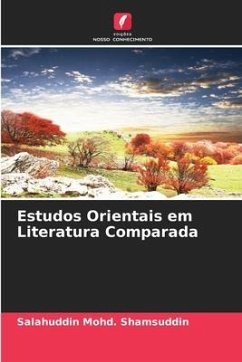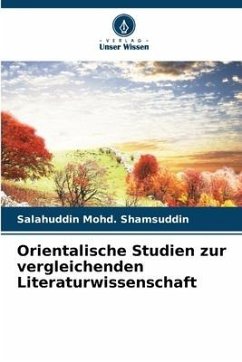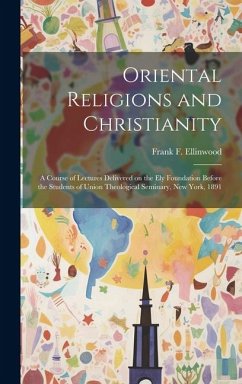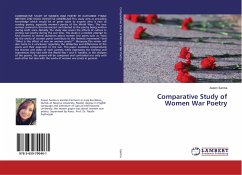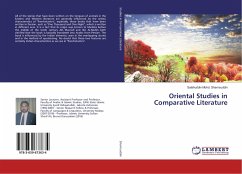
Oriental Studies in Comparative Literature
Versandkostenfrei!
Versandfertig in 6-10 Tagen
37,99 €
inkl. MwSt.

PAYBACK Punkte
19 °P sammeln!
All of the stories that have been written on the tongues of animals in the Eastern and Western literature are generally influenced by the artistic characteristics of "Panchatantra", especially, those books that have been written in Persian, such as "One Thousand and One Night", which is written in different eras. It is a fact that its origin was known to Muslims before the middle of the tenth century AD. Masudi and Ibn Al-Nadim both clarified that the book is basically translated into Arabic from Persian. The book is influenced by the Indian elements, seen in the overlapping stories and in the...
All of the stories that have been written on the tongues of animals in the Eastern and Western literature are generally influenced by the artistic characteristics of "Panchatantra", especially, those books that have been written in Persian, such as "One Thousand and One Night", which is written in different eras. It is a fact that its origin was known to Muslims before the middle of the tenth century AD. Masudi and Ibn Al-Nadim both clarified that the book is basically translated into Arabic from Persian. The book is influenced by the Indian elements, seen in the overlapping stories and in the method of questioning. No doubt that these two features are certainly Indian characteristics as we see in "Panchatantra".





